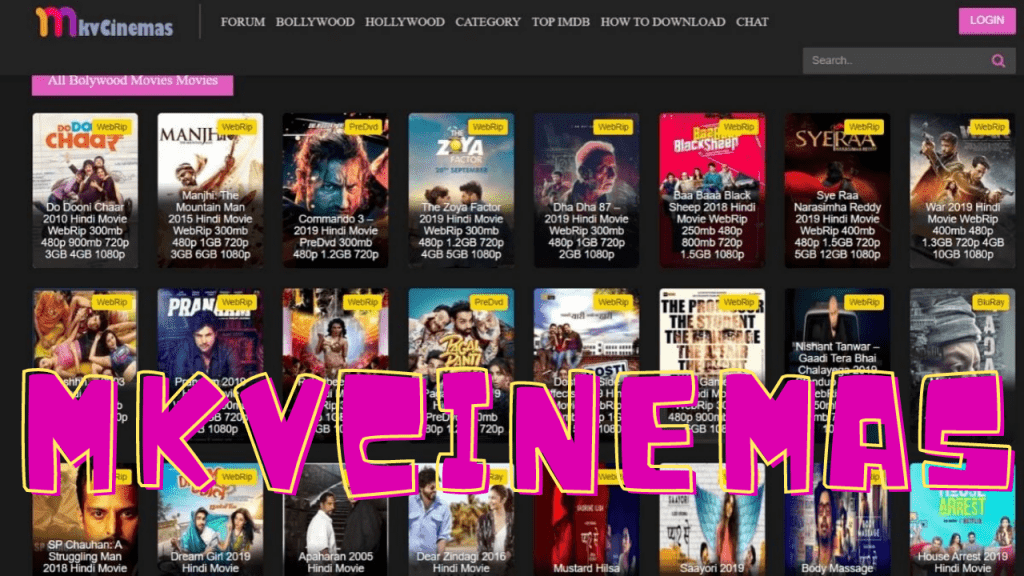MKV movie cinema has become a popular term among film enthusiasts and tech-savvy audiences alike. With the rise of digital media, the MKV format has revolutionized how we consume films, allowing for high-quality visuals and audio in a single file. As the demand for accessible, high-definition movies increases, understanding MKV and its impact on cinema becomes essential for both casual viewers and avid cinephiles.
The MKV (Matroska Video) format is known for its versatility, supporting multiple video, audio, and subtitle tracks within a single file. This capability not only enhances the viewing experience but also allows for seamless integration with various devices and media players. As a result, many movie lovers are now turning to MKV movie cinema for their home viewing needs, embracing the format's ability to deliver premium content without compromising quality.
In this article, we will delve into the fascinating world of MKV movie cinema, exploring its origins, benefits, and how it has transformed the way we watch films. We will also answer some common questions surrounding this format and provide tips on how to make the most of your MKV movie experience. Whether you're a seasoned film buff or a curious newcomer, there's something valuable to discover in the realm of MKV cinema.
What is MKV Movie Cinema?
MKV movie cinema refers to the use of the MKV file format for storing and viewing movies. The MKV format is particularly popular due to its ability to accommodate a wide range of video and audio codecs, making it a favorite among filmmakers and distributors. One of the biggest advantages of MKV is that it can hold multiple audio tracks, subtitles, and chapters, all within a single file.
Why Choose MKV Format for Movies?
There are several reasons why MKV has become a preferred choice for movie enthusiasts:
- High Quality: MKV files can store high-definition video and audio, providing an immersive viewing experience.
- Multiple Tracks: The ability to include multiple audio and subtitle tracks allows viewers to customize their experience.
- Wide Compatibility: Most modern media players and devices support the MKV format, making it accessible to a broad audience.
- Open Source: Being an open-source format, MKV is constantly being developed and improved by a community of contributors.
How Do You Play MKV Movies?
Playing MKV movies is straightforward, thanks to the numerous media players available today. Here are a few popular options:
- VLC Media Player: A free and open-source player that supports a wide range of formats, including MKV.
- KMPlayer: Another versatile player that offers excellent support for high-definition MKV files.
- PotPlayer: A highly customizable player that provides advanced features for MKV playback.
- Media Player Classic: A lightweight option with a simple interface, perfect for playing MKV files.
What Are the Benefits of MKV Movie Cinema?
The benefits of MKV movie cinema extend beyond just playback. Here are some key advantages:
- Versatility: MKV can store various types of content, from standard videos to complex interactive experiences.
- Future-Proofing: As technology evolves, MKV remains adaptable, ensuring continued relevance in the film industry.
- Enhanced Features: MKV files can include chapters, menus, and metadata, improving the overall viewing experience.
How to Convert Movies to MKV Format?
Converting movies to MKV format can be done easily using various tools available online. Here’s a simple guide:
- Choose a Converter: Select a reliable video converter tool (like HandBrake or Any Video Converter).
- Upload Your Movie: Load the video file you want to convert.
- Select MKV as Output Format: Choose MKV from the list of available formats.
- Start the Conversion: Initiate the conversion process and wait for it to finish.
- Check Your File: Once converted, locate the MKV file and test it on your preferred media player.
What Challenges Does MKV Movie Cinema Face?
Despite its popularity, MKV movie cinema is not without its challenges. Some common issues include:
- Compatibility: Older devices may struggle to play MKV files, leading to playback issues.
- File Size: MKV files tend to be larger than other formats, requiring more storage space.
- Playback Performance: High-resolution MKV files may require powerful hardware for smooth playback.
What Does the Future Hold for MKV Movie Cinema?
The future of MKV movie cinema looks promising, with ongoing advancements in technology. As streaming services and digital distribution continue to grow, the MKV format is likely to remain a vital part of the cinematic landscape. Its ability to store high-quality content with multiple options for viewers makes it an ideal choice for filmmakers and distributors alike.
Conclusion: Embracing MKV Movie Cinema
In conclusion, MKV movie cinema represents a significant evolution in the way we consume films. With its numerous benefits and adaptability, the MKV format is poised to remain a staple in the entertainment industry. As audiences continue to seek high-quality viewing experiences, understanding and embracing MKV will be essential for both casual viewers and dedicated cinephiles. Whether you're watching a blockbuster or an indie film, the world of MKV movie cinema offers something for everyone.
Discovering Movierulz 5 Ullu: A Gateway To Entertainment
Exploring The World Of OKXX: A Comprehensive Guide
Discovering The World Of Mkvcine Mkvcinemas

